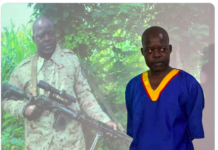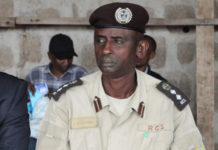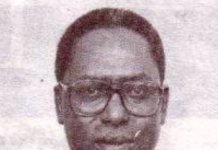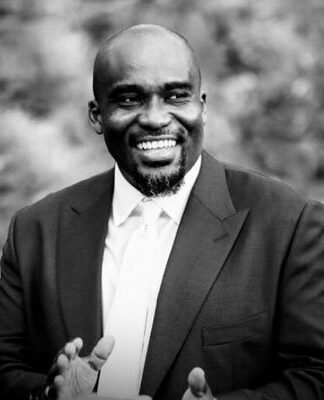A Congolese warlord has denied charges including murder, rape, pillaging and using child soldiers at his first appearance before theinternational criminal court (ICC).
Bosco Ntaganda had been one of the court’s longest-sought fugitives until he unexpectedly became the first suspect to voluntarily turn himself in by seeking refuge last week at the US embassy in the Rwandan capital, Kigali. He was flown to the Netherlands on Friday.
Rwandan-born Ntaganda allegedly led rebels who terrorised eastern Congo in brutal tribal fighting from 2002-03.
Looking nervous, he wore a dark suit and tie in court on Tuesday and listened to a translation of the proceedings through a headset.
“I was informed of these crimes, but I plead not guilty,” Ntaganda, 39, said after a court official read out the charges against him.
Judge Ekatarina Trendafilova cut him off, saying he did not have to enter a plea at the hearing.
The judge said a hearing at which the court will assess the strength of prosecutors’ evidence in the case will begin on 23 September. After that hearing, judges will decide whether the case should go to trial.
Ntaganda’s lawyer, Hassane Bel Lakhdar, said he would apply for Ntaganda to be released pending his trial.
He also complained that staff at the court’s detention unit had not given him enough time to speak to Ntaganda.
“My client surrendered to the court voluntarily,” he said. “The charges against him right now are very significant, very serious and we must be given the possibility to meet and discuss directly [the charges] with our client.”
Ntaganda’s ruthlessness in battle earned him the nickname “the Terminator”. Prosecutors say he was the chief of operations of the Union of Congolese Patriots and its armed wing, the Patriotic Forces for the Liberation of Congo, which waged a brutal military campaign to establish political and military domination for the Hema tribe over the resource-rich Ituri region of eastern Congo, allegedly killing some 800 people in a few months.
His indictment says rebels surrounded and shelled villages before going house-to-house to slaughter survivors with guns, machetes, spears and knives. The fighters allegedly raped women and abducted them to turn into sex slaves during the attacks.
The former leader of the rebels, Thomas Lubanga, last year became the first person convicted in the ICC’s 10-year history. He was found guilty of recruiting and using child soldiers in fighting in Ituri and sentenced to 14 years’ imprisonment. He has appealed against his conviction.
After his first indictment in 2006, Ntaganda became a symbol of impunity in Africa, playing tennis and dining at top restaurants in the eastern Congo city of Goma, apparently without fear of arrest.
Despite the indictment for using child soldiers, Ntaganda joined the Congolese army in 2009 as a general following a peace deal that paved the way for him and his men to be integrated into the military.
Last year, however, he was indicted again by the ICC, this time for crimes including murder, rape and sexual enslavement, and the agreement between the former warlord and the Congolese government disintegrated.
Human Rights Watch welcomed Ntaganda’s appearance in court as a significant step for victims, and called on the court to now go after more senior officials for complicity in the atrocities in eastern Congo.
“If the ICC is going to help break the repetitive cycle of abuses in Congo, it needs to move beyond local warlords and prosecute the senior officials standing behind them,” said Geraldine Mattioli-Zeltner, international justice advocacy director at Human Rights Watch.































































